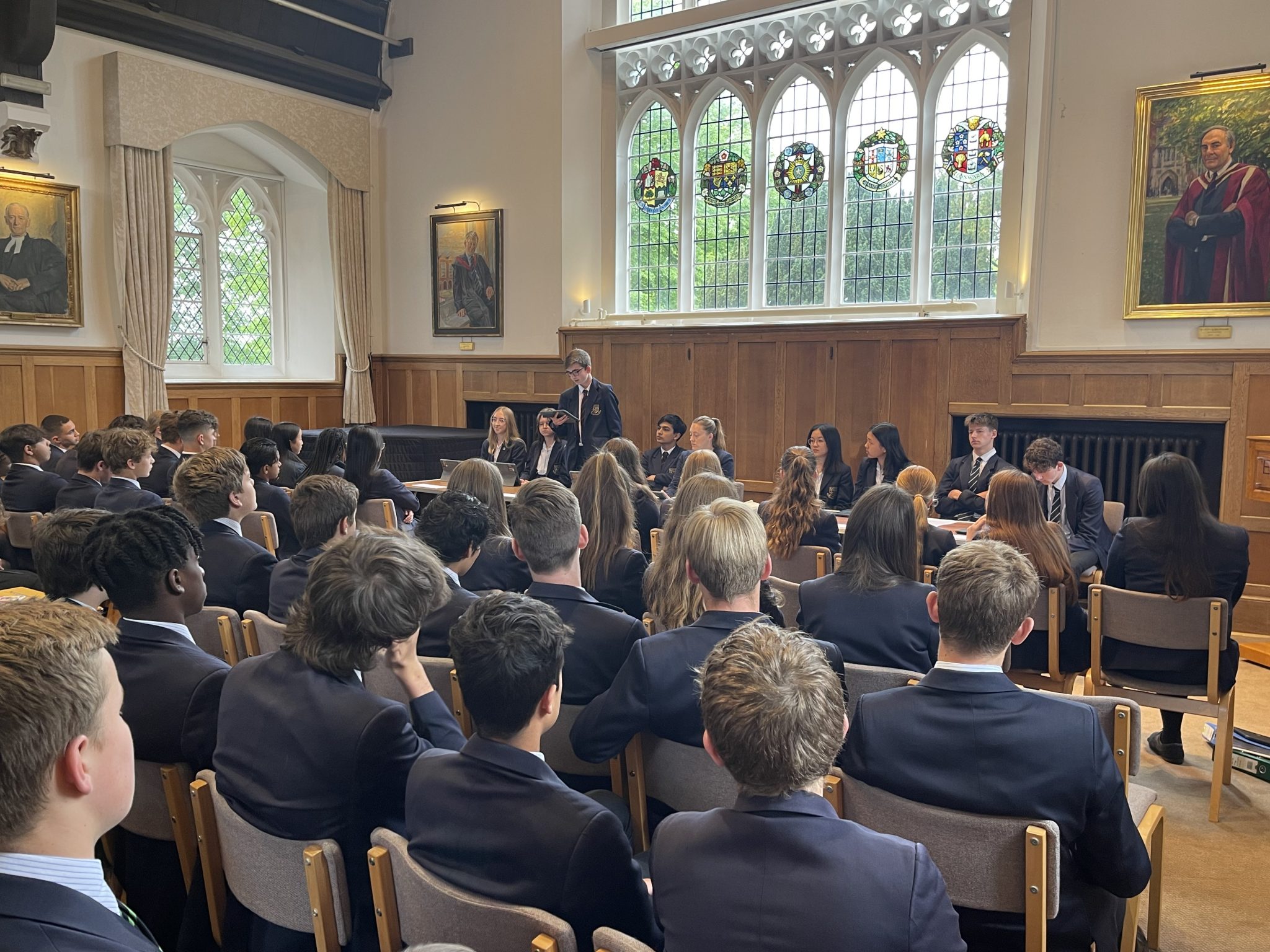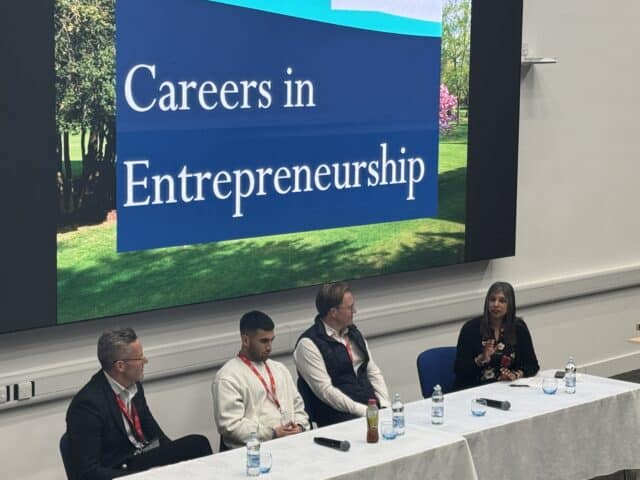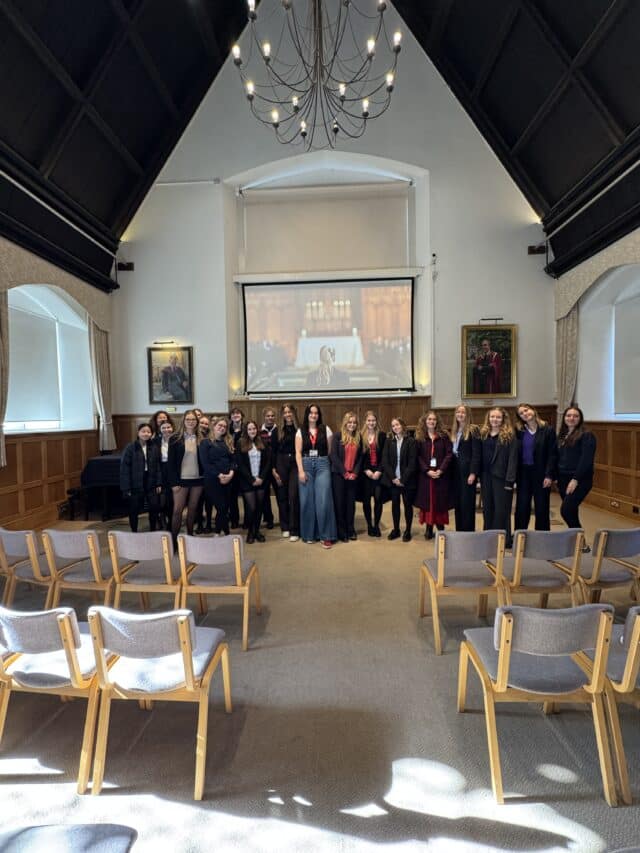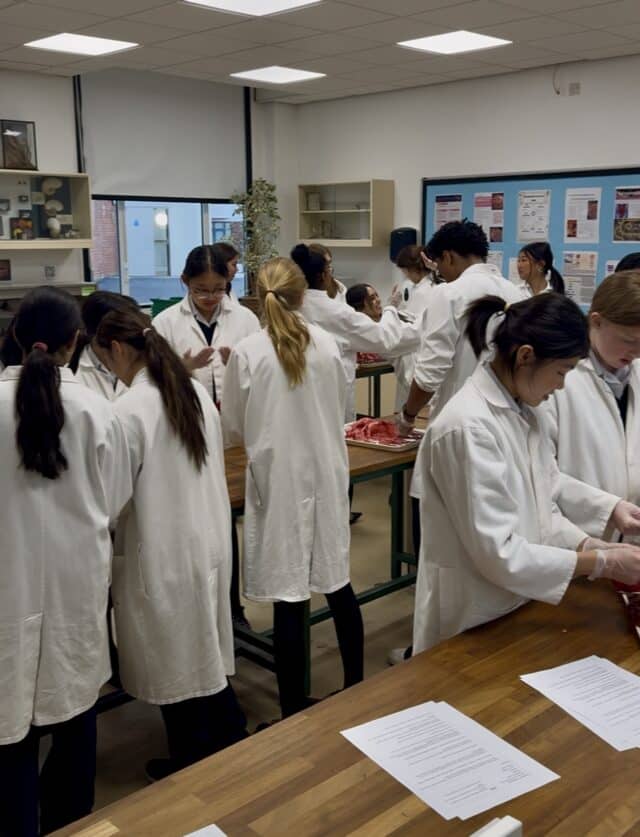Last week saw the culmination of four weeks of combative debating with the finals of the Darbyshire Debating Competition. On Tuesday and Thursday morning respectively, the Lower Sixth and Upper Fourth assembled in Main Hall to witness representatives from the final four houses go head-to-head to determine the winners of this long-awaited inter-house competition.
Lower Sixth
The Lower Sixth final took place on Tuesday morning and was a testament to the strength and agility of the speakers’ sharp minds, who debated the motion: ‘This house believes that meritocracy is a lie’.
Opening the proposition’s arguments, Mojo Ojo and Sienna Romero-Cameron (Cr) both spoke forcefully and eloquently to unfold a sophisticated argument: that our growing awareness of the role of unconscious bias and systemic discrimination had revealed a serious shortfall between the ideals of meritocracy that we are told our society possesses, and the reality of their current implementation.
Meely Thesiger and Sophie Matthews (R) struck back immediately, firmly, and confidently, with examples of meritocracy at work in our society and its historical and international analogues, recruiting Han China, Plato & Aristotle, Singaporean SATs, the Olympics, and Baroness Chakrabarti to bolster their points.
Stefan Vaduva and Yan Mezhebytskyi (F) adopted a measured and deliberate approach, reiterating the proposition’s central line of argument and weathering a storm of objections and interruptions from the opposition speakers with admirable calm.
Arthur van Grondelle (C) gave a virtuosic demonstration of mid-debate flexibility, locking horns in fine detail with several points made by the proposition before tugging on the audience’s heartstrings to bring them round to his team’s point of view. Daniel Lodge followed his active participation with equally dynamic closing remarks that took a spanner to the proposition’s arguments with gleeful abandon.
In the end, the energy and alacrity of the Rosebery and Carr speakers won over the audience and a popular vote overturned the motion that meritocracy is a lie.
The final judgment for the most impressive house team nevertheless went to Crawfurd for marrying a clear and statesmanlike style with a depth of understanding on the topic matched by no other team.
All of the speakers, however, acquitted themselves excellently and should be proud of their keen participation in an exceptionally close-fought contest.
Upper Fourth
On Thursday morning, it was the turn of the Upper Fourth, who debated the motion: “This house believes that police force funding should be redirected to social services”.
The debate was lively and engaging, and the speakers contended with the scope of the motion admirably. As opening proposition, Sebastian Harper and Rohan Patel (G) set the standard for the debate with well-prepared and convincing speeches, arguing that funding the police is a reactive measure to solving crime. They posited that redirecting funding to social services would be a more proactive measure, tackling the problem at its roots.
Anne Nie and Constance Yao (W) responded in kind and systematically deconstructed the proposition’s arguments, speaking authoritatively and challenging the proposition on the risk to public safety, stating the need to make the police more effective.
Marigold Jones and Georgie Watkin (Wh) delivered exceptionally detailed speeches supported by precise examples. Then, Kyle Ruth and John Warfield (Fa) closed the debate with passionate speeches that responded effectively to several points of information from the proposition, arguing that a reduction in funding would prevent the police from fulfilling their duties.
The overall quality was impressively high and no doubt, these talented debaters will go on to gain more success as they continue their College careers.
The final decision was predictably close but, ultimately, the final judgement went to Wilson for their more combative debating style that effectively dealt with the key points of clash in the debate. All of the speakers, however, performed admirably and should be exceptionally proud of their enthusiastic participation in the competition.
By Miss Georgina Smith, English Department





